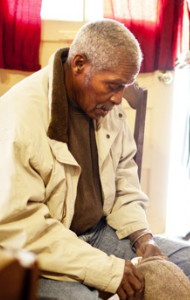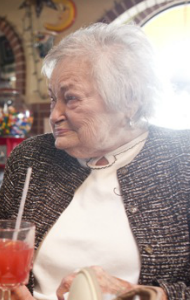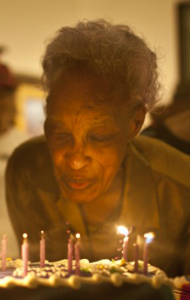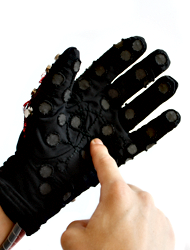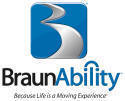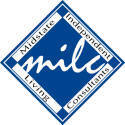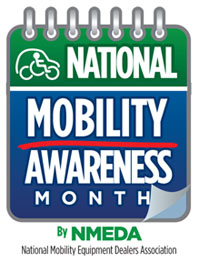|
AIP Bulletin April 2012 |
||||||||||||||||||||||||||||||

|
||||||||||||||||||||||||||||||
|
Quote of the Month "Dancing is silent poetry." |
||||||||||||||||||||||||||||||
| Finances: Family Matters "The Money Squeeze" | ||||||||||||||||||||||||||||||
|
NPR's Morning Edition launched a two-month long look at multigenerational households called "Family Matters." David Green, reporter for the series, takes listeners into the lives of "three families struggling with issues of money, duty and love."
The series will also look at the need for financial planning; available options options for elder care; costs of do-it-yourself care for the elderly; long-term care insurance; college costs; and reverse mortgages.
Listen:
One Roof, Three
Generations, Many Decisions
|
||||||||||||||||||||||||||||||
| Housing: Time To Rethink Traditional Retirement Communities | ||||||||||||||||||||||||||||||
|
Luxury villas, detached homes, one- and two-bedroom apartments built for the golden years -- and sitting empty. Is the independent living model — a standard feature at the traditional retirement community — an endangered species? It could be, unless serious changes are made to accommodate the Boomer generations, according to a recent study by Varsity Communications. The Next Generation: Understanding What the Boomer Consumer Wants From Retirement Living, provides some surprising insights into the mind-set of Boomers as they consider retirement living options, their attitudes toward current community attributes, and what they'll be looking for in the future in terms of services, housing and design — should they choose to relocate at all. Demand for traditional continuing care retirement communities (CCRCs) is poised for growth in the coming decades as the population ages and experiences declining health. A glut of high-end independent living products built during the housing boom, decreasing real estate values, and the increasing availability of home care and "aging-in-place" have created serious census issues for many traditional communities, which are finding it increasingly difficult to sell through to the Boomer generations. These potential residents are working longer, increasingly seeking younger-feeling, more active options, or are remaining in their homes until physically unable. Some of the study's top-level findings:
"Boomers have redefined a number of consumer areas," says John Bassounas, director of client services for Varsity. "Aging and the concept of retirement itself are no exceptions. Clearly, they're not going to accept the same community where mom and dad or grandma lived, nor will they be content to sit poolside or play shuffleboard. This research showed that, while assisted living and skilled nursing will always be necessary, many communities, architects, planners and directors will have to rethink the whole idea of independent living. Understanding Boomer consumers' mind-sets, lifestyles and life stages are the best ways to plan for their impact on those products and services."
For a copy of the full report please visit:
http://varsitybranding.com/index.php/next-generation/
| ||||||||||||||||||||||||||||||
| Techwatch | ||||||||||||||||||||||||||||||
|
The Medical Mirror creates a moving reflection of your body from the inside out. Data from your
Design Research Lab has developed a communication device for deaf/blind persons that translates the hand-touch alphabet 'Lorm' into text and vice versa. The Mobile Lorm Glove uses pressure sensors and a bluetooth connection. It supports mobile communications (texting, chat, email) and it enables parallel one-to-many communications. The Glove gives greater independence to deaf/blind people because they can engage and communicate people who do not know Lorm. Click here to watch a video about the Mobile Lorm Glove.
| ||||||||||||||||||||||||||||||
| Campaign: Support Independent Living | ||||||||||||||||||||||||||||||
We invite you to join our campaign to help people find the ideas, products, services and other resources that will help them successfully live independently and age in place. The ability to live independently while managing a chronic condition from home has enormous benefits. In addition to the necessary medical equipment needed, it's important to know what types of home construction, furniture and furnishings are available to make lives as functional and comfortable as possible. And that is what this campaign is all about and we welcome your support.
NMEDA will be giving away a minimum of three Wheelchair Accessible Vehicles to a caregiver, veteran or person with a disability that is dealing with or overcoming mobility challenges.
To enter, submit a 2-3 minute video (or less) OR a picture and up to 400 words of text on
how you are overcoming mobility challenges and why people should vote for your
story. Click here for more information
or to enter the contest. |
||||||||||||||||||||||||||||||
| Talk With Us | ||||||||||||||||||||||||||||||
|
Your rants, raves, suggestions and stories are always welcome! Tell us what we can do to help you AIP in your home, your way!
You can send an email:
Write on our Facebook wall:
Or Tweet us at:
|
||||||||||||||||||||||||||||||
| Visit Us | ||||||||||||||||||||||||||||||
|
||||||||||||||||||||||||||||||

